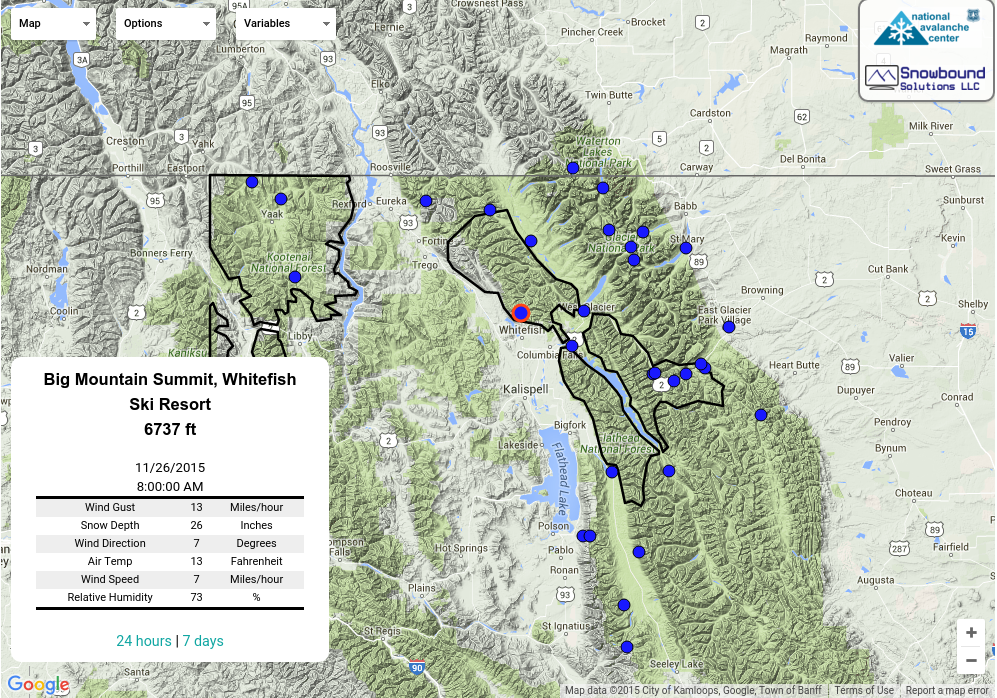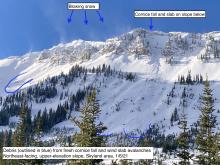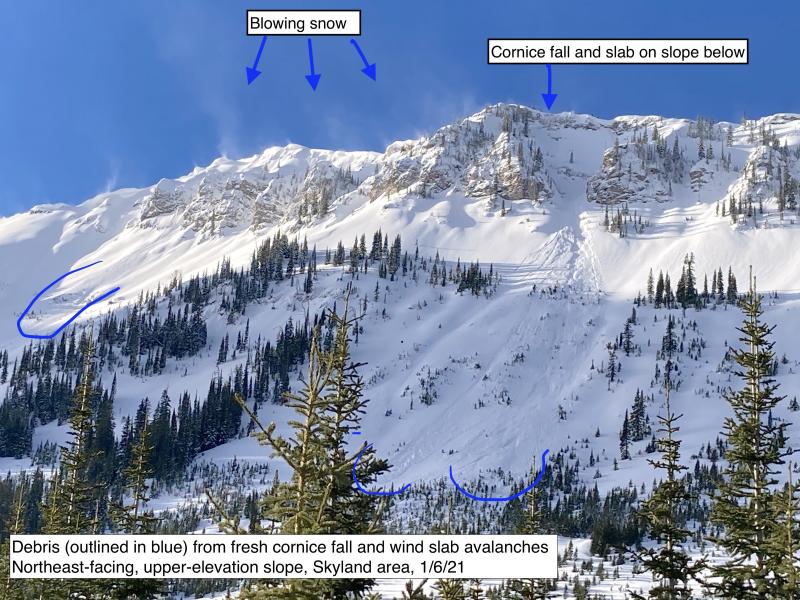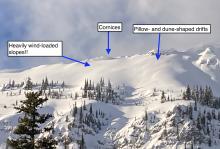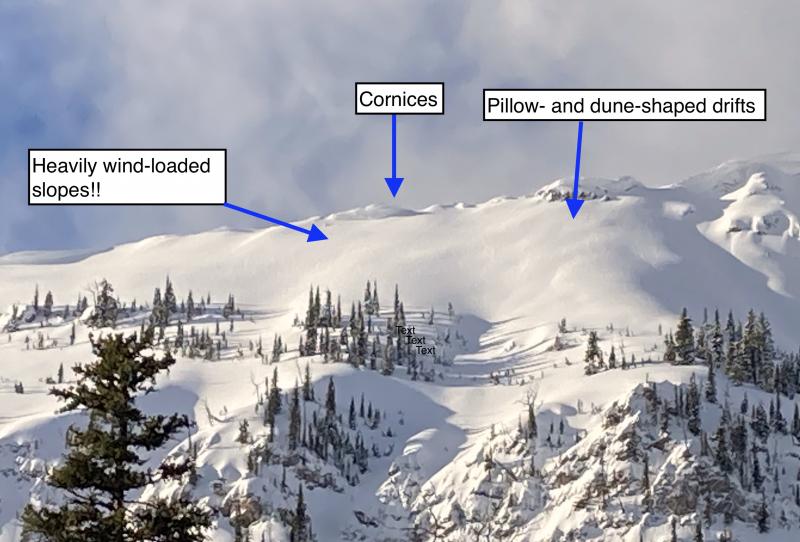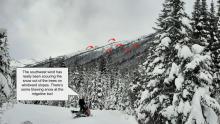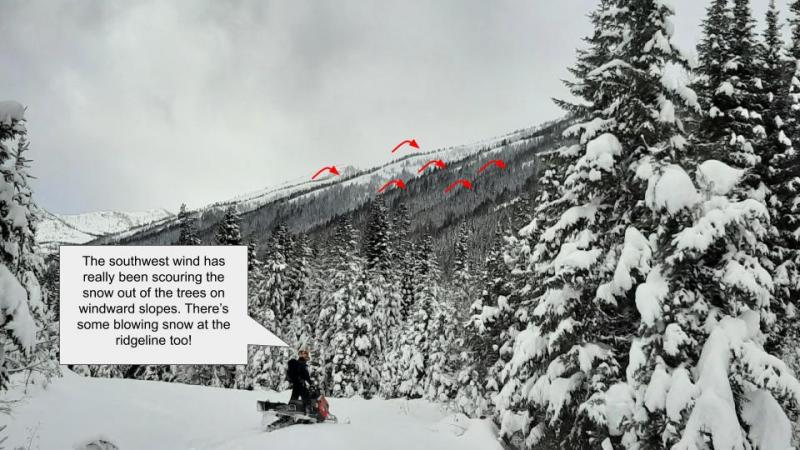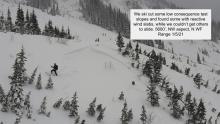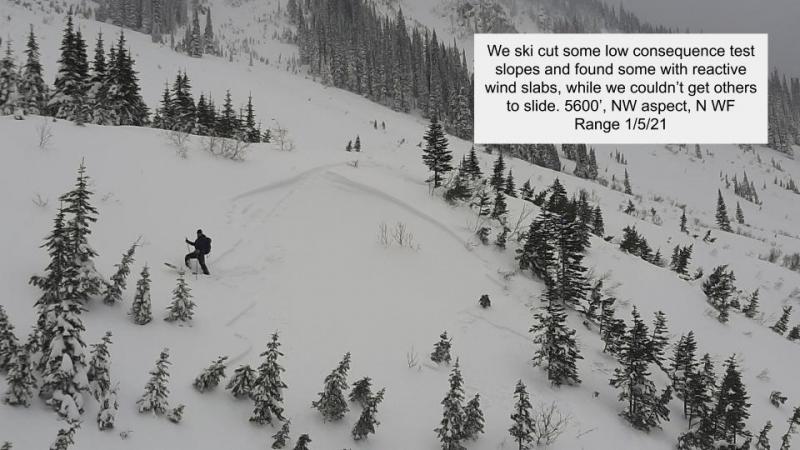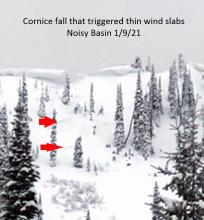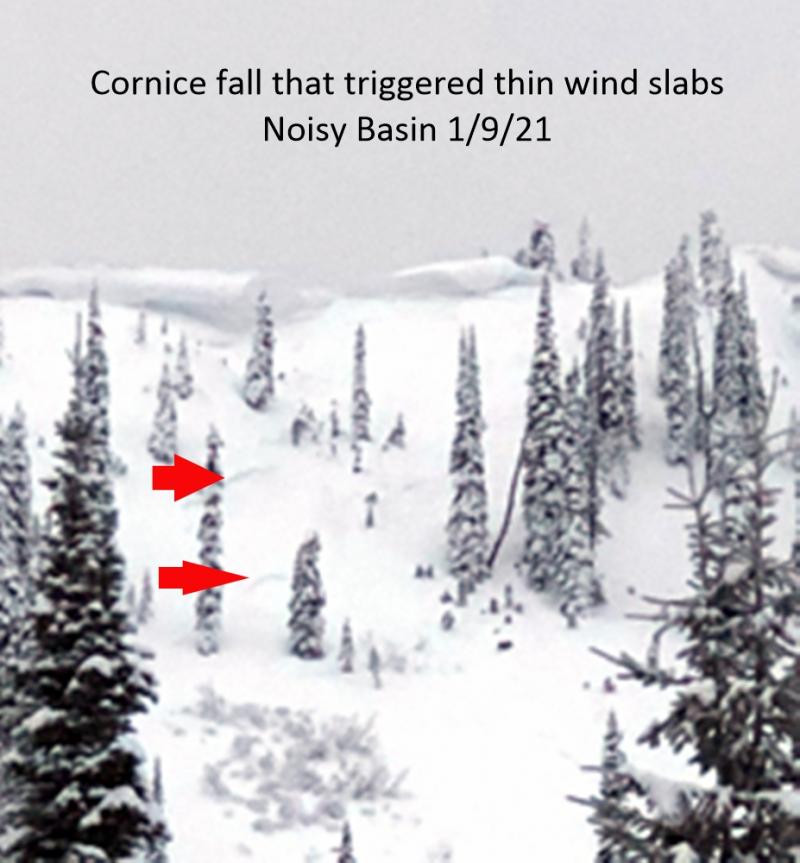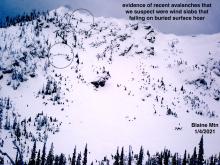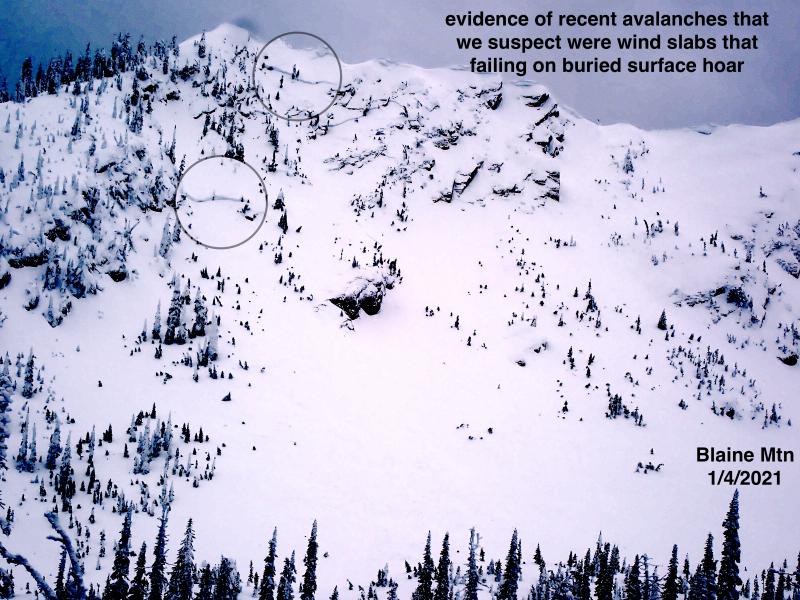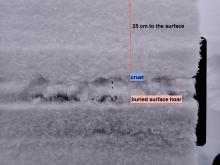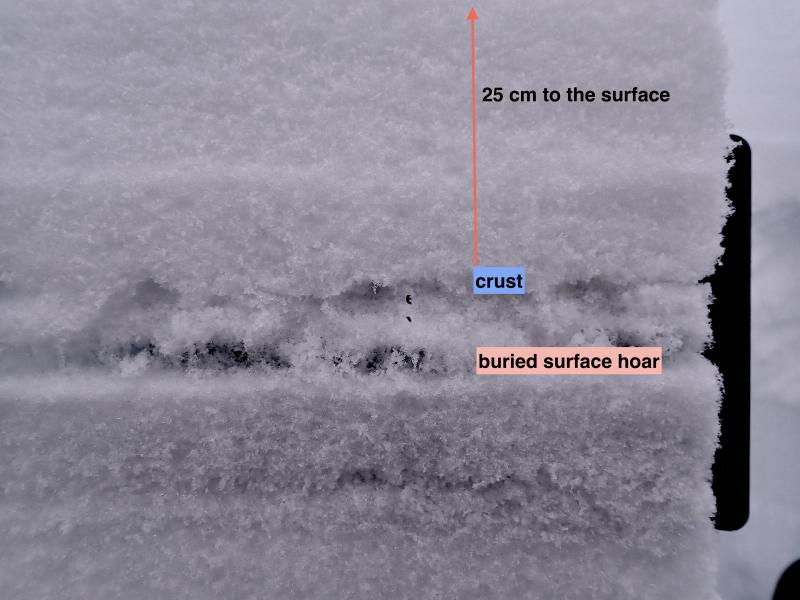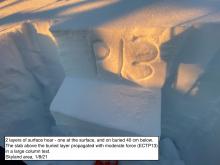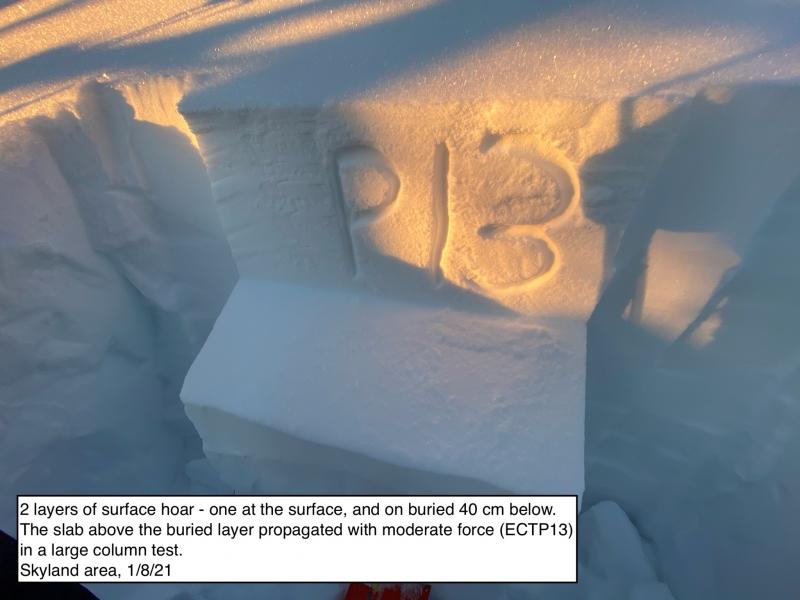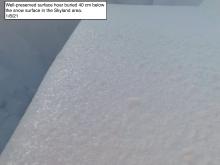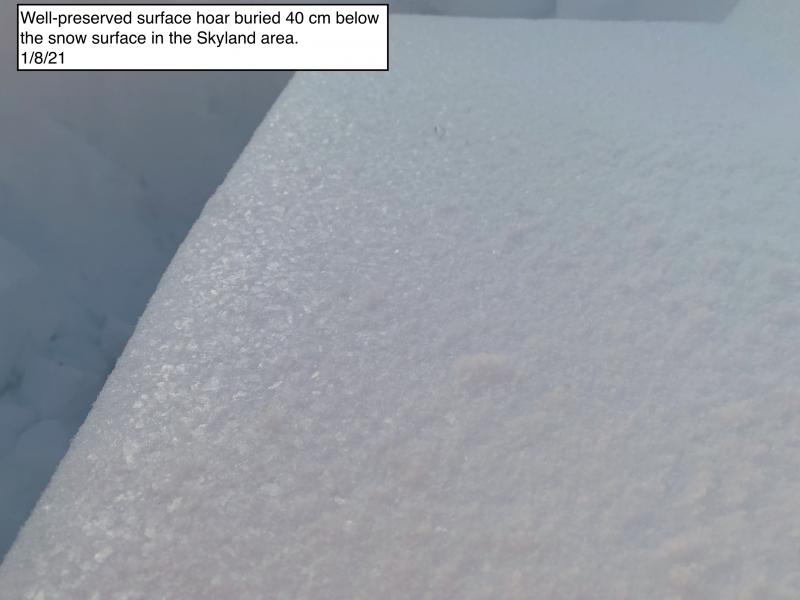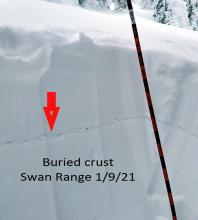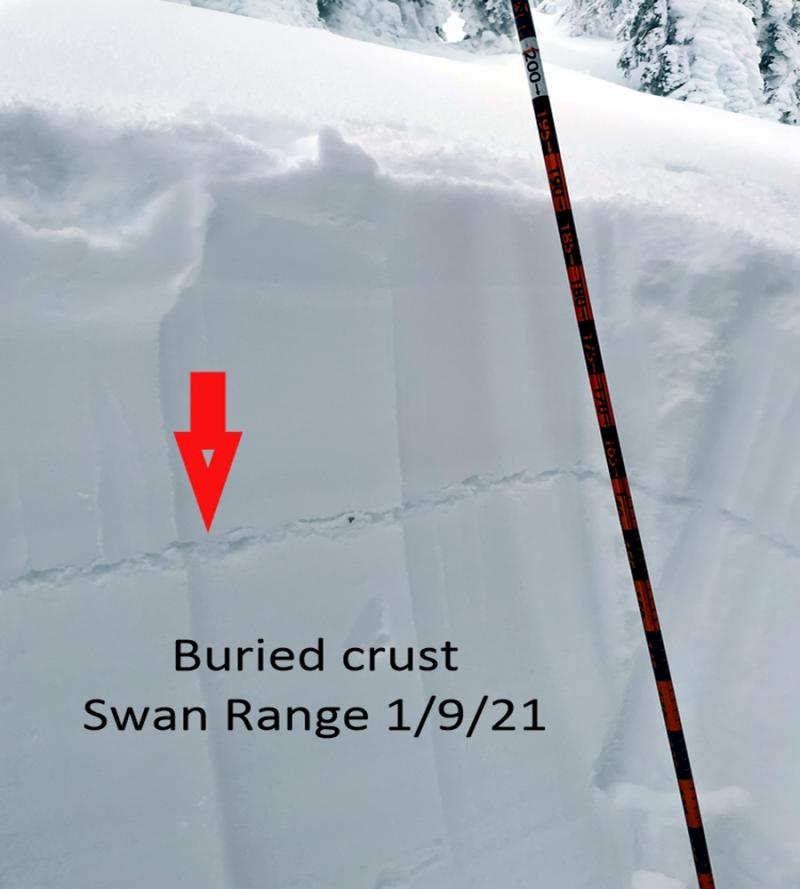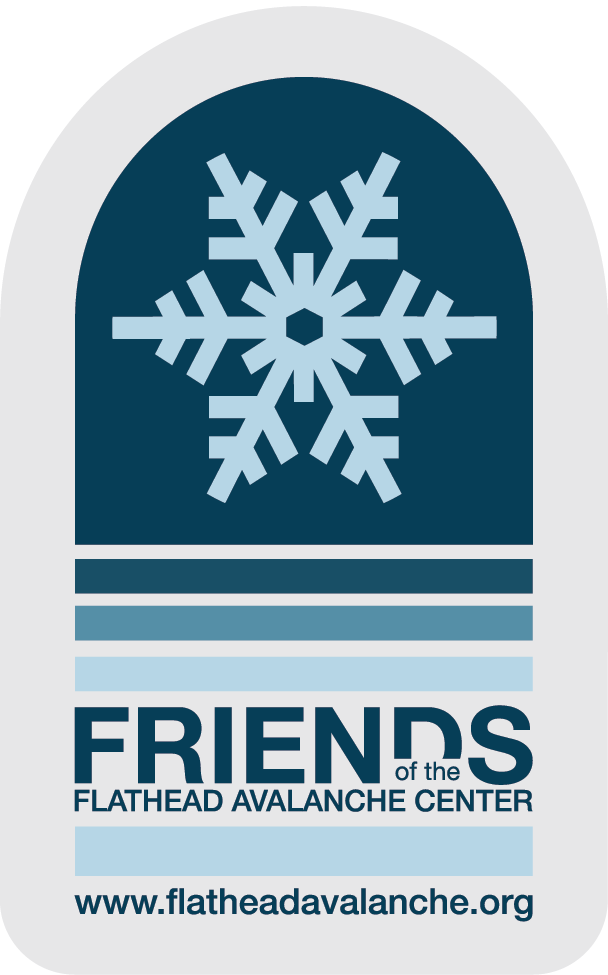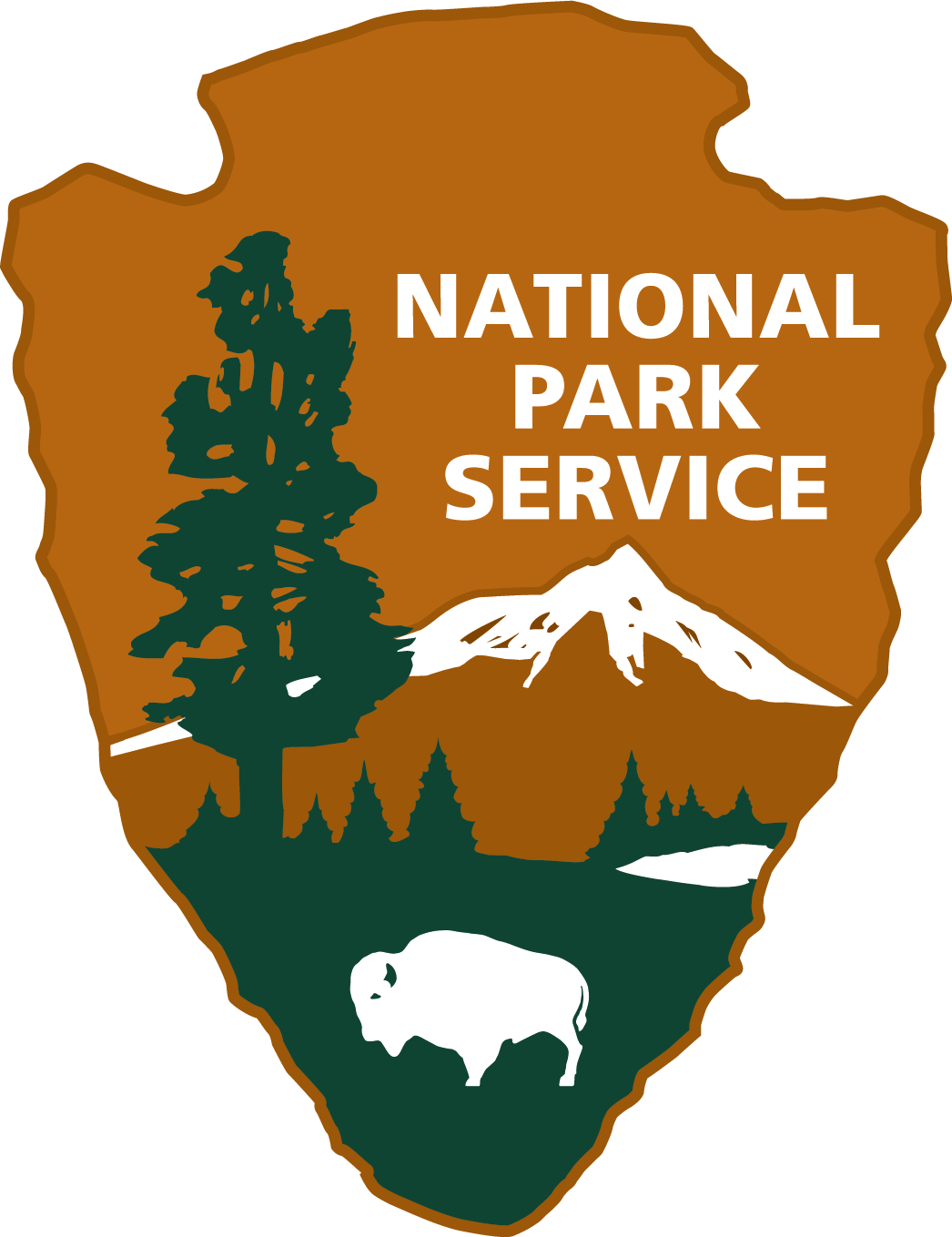| Sunday | Sunday Night | Monday | |
|---|---|---|---|
| Cloud Cover: | Partly cloudy with snow showers in the afternoon. | Snow showers. | Snow showers decreasing. |
| Temperatures: | 25-33 deg. F. | 13-20 deg. F. | 21-29 deg. F. |
| Wind Direction: | Southeast | East - Northeast | Northeast |
| Wind Speed: | 5 mph | 7-8 mph | 4-5 mph |
| Snowfall: | 0 in. | 2-4 in. | 0-1 in. |
| Snow Line: |
Whitefish Range
Swan Range
Flathead Range and Glacier National Park
How to read the forecast
The avalanche danger is MODERATE above 5000 feet. Human triggered avalanches are possible on steep wind loaded slopes in alpine terrain and in areas with a shallow snowpack where it is easier to affect deeper weak layers. Dig into the snow to look for these weak, faceted layers and carefully assess recently wind loaded terrain before committing to it.
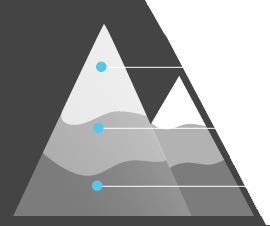
2. Moderate
?
Above 6500 ft.
2. Moderate
?
5000-6500 ft.
1. Low
?
3500-5000 ft.
- 1. Low
- 2. Moderate
- 3. Considerable
- 4. High
- 5. Extreme
-
Type ?
-
Aspect/Elevation ?
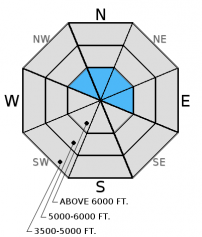
-
Likelihood ?CertainVery LikelyLikelyPossible
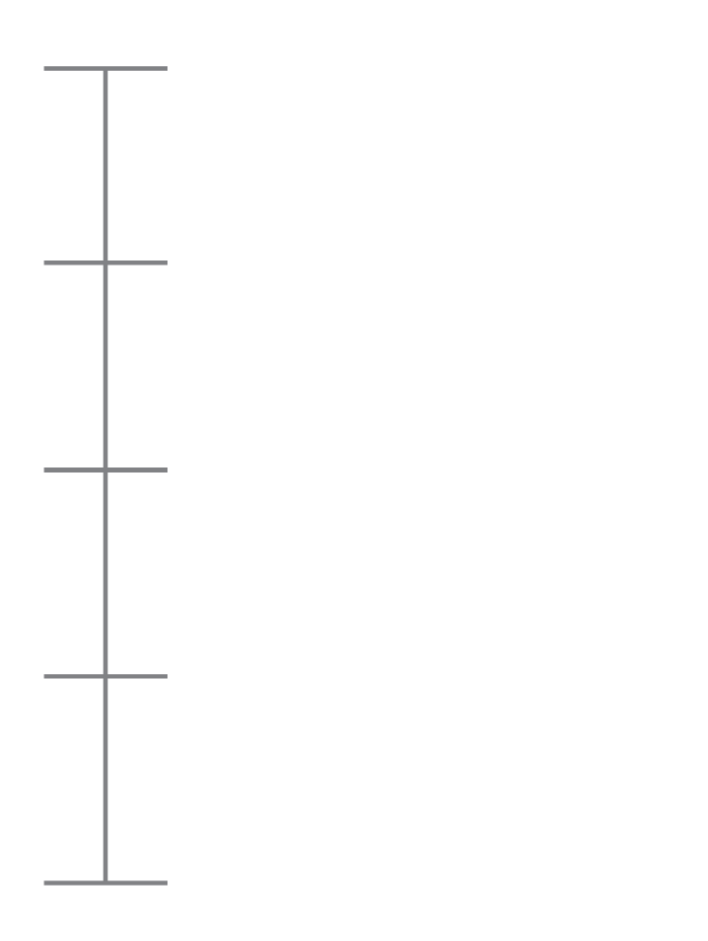 Unlikely
Unlikely -
Size ?HistoricVery LargeLargeSmall

Recent warm weather and light winds have allowed wind slabs formed earlier in the week to strengthen. However, observations from the true alpine area of our region have been sparse and we do not know the extent of our wind slab problem. Therefore, wind slabs found in these high elevation locations should still be approached with caution. Wind slabs can be identified by smooth rounded pillows on the surface near ridgelines. Avoid steep, exposed slopes in the alpine that harbor these recent slabs. Also, keep in mind that even a small avalanche can trigger deeper instabilities resulting in a larger, more destructive slide.
-
Type ?
-
Aspect/Elevation ?
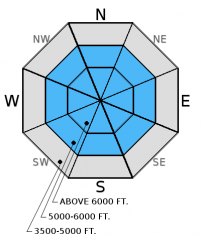
-
Likelihood ?CertainVery LikelyLikelyPossible
 Unlikely
Unlikely -
Size ?HistoricVery LargeLargeSmall

Despite recent mild temperatures our snowpack structure remains weak. The weak layers in the pack have produced few avalanches so far this season but we feel they will awaken when tested by the "right" trigger. Therefore, avoid areas where you are more likely to trigger them like steep, rocky terrain. Digging in the snowpack is the only way to know if these layers exist where you are recreating.
Impressive amounts of surface hoar formed last weekend and early this week on all aspects at all elevations. Much of it was destroyed by sun, wind and rain, but in some locations it remains preserved beneath a thin layer of recent snow. It would be a good idea to pay attention to where this layer exists as it could become a problem in the future with additional snow and slab formation above.
Saturday: FAC staff were at WMR teaching an avalanche class where they noted new surface hoar growth on all aspects at upper elevations along with a weak snowpack structure. Skiers east of the ski area boundary noted a 3 cm thick rain crust.
Friday: Mark traveled to Rescue Creek in the Flathead Range where he saw evidence of a low elevation wet loose avalanche cycle that had occurred from the rain and warming event on Wednesday. We also noted a rain crust at all elevations and substantial brush that is still exposed at low and mid elevations. FAC staff (Guy, Adam and Zach) were in the Lost Johnny area of the Swan Range where they saw no evidence of recent avalanche activity. They did find buried surface hoar that was minimally reactive in their stability tests. Skiers in the Flathead Range near Essex reported a rain crust that existed up to 6600'. They also noted evidence of a wet loose avalanche cycle from Wednesday's rain.
Tuesday: Seth was in the Flathead Range on Scalplock Mountain above Essex in GNP. where he observed no obvious signs of instability and little results in stability tests on NE and SE aspects. Poor structure to the snow pack with considerable depth hoar and other weak layers in the snow pack and widespread, sometimes very large surface hoar.
See below for all observations this season.
Yesterday was another mild day with calm to light winds and periods of sun. As of 5:00 a.m. temperatures above 6000 feet range from 20-28º F. Winds have changed direction and are currently out of the south-southwest at 1-5 mph with gusts from 4-8 mph. Light snow arrived overnight leaving us with 0-3" of new snow. For today, expect partly cloudy skies, light winds and light snow showers entering our area this afternoon.
| 0600 temperature: | 20-28 deg. F. |
| Max. temperature in the last 24 hours: | 24-34 deg. F. |
| Average wind direction during the last 24 hours: | southwest |
| Average wind speed during the last 24 hours: | 5-10 mph |
| Maximum wind gust in the last 24 hours: | 7-12 mph |
| New snowfall in the last 24 hours: | 0-3 inches |
| Total snow depth: | 50-69 inches |
This advisory applies only to backcountry areas outside established ski area boundaries. This advisory describes general avalanche conditions and local variations always occur. This advisory expires at midnight on the posted day unless otherwise noted. The information in this advisory is provided by the USDA Forest Service who is solely responsible for its content.

